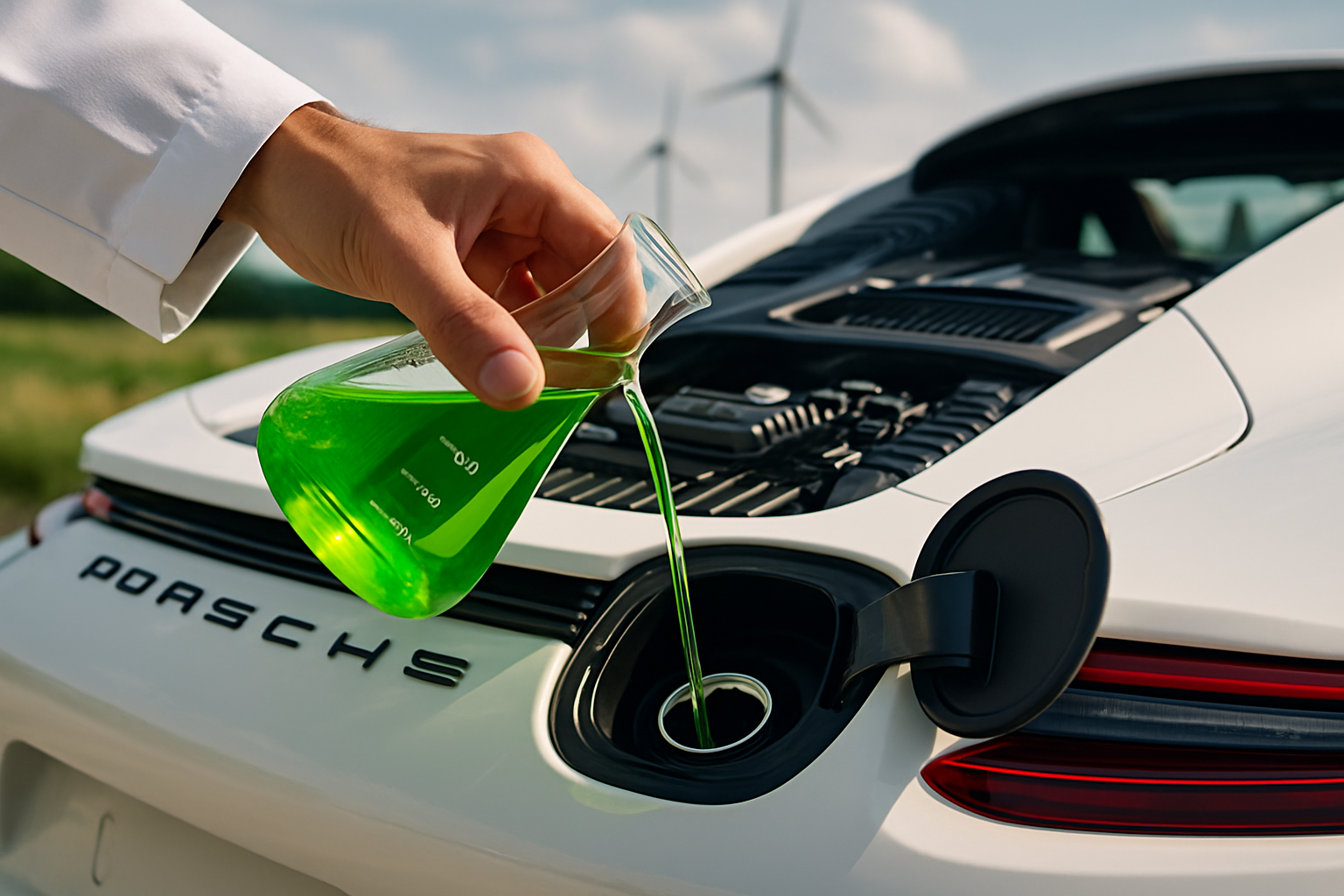Microalgae: The Unexpected Fuel of Tomorrow's Roads
Picture this: You're cruising down the highway in your sleek sports car, the engine purring smoothly as you accelerate. But instead of fossil fuels powering your ride, it's running on something entirely unexpected – algae. This isn't science fiction; it's a glimpse into the future of automotive fuel. As the world grapples with environmental concerns and dwindling oil reserves, researchers are turning to an unlikely hero: microalgae. These microscopic organisms could revolutionize how we fuel our vehicles, offering a sustainable and efficient alternative to traditional petroleum-based products.

From Pond to Pump: The Algae-to-Fuel Process
The journey from algae to automotive fuel is a fascinating blend of biology and engineering. It begins with carefully selected algae strains cultivated in photobioreactors or open ponds. These controlled environments optimize growth conditions, maximizing oil production. Once the algae reach maturity, they’re harvested and processed to extract their oils. This lipid-rich substance then undergoes refinement similar to crude oil, resulting in biodiesel or other hydrocarbon fuels compatible with existing engines. The remaining biomass isn’t wasted – it can be used for animal feed, fertilizer, or even to produce biogas.
Overcoming Roadblocks: Challenges in Algal Fuel Production
While the potential of algae-based fuels is enormous, several hurdles must be overcome before they become a mainstream reality. One significant challenge is scaling up production to meet global demand. Current methods are energy-intensive and costly, making algal fuels less economically viable than traditional fossil fuels. Researchers are working on innovative cultivation techniques, including vertical farming and genetic engineering, to boost productivity and reduce costs. Another obstacle is the energy balance – ensuring that more energy is produced than consumed in the fuel production process. Advancements in harvesting and extraction methods are crucial to improving overall efficiency.
The Environmental Impact: A Greener Drive
The environmental benefits of algae-based fuels are compelling. Unlike fossil fuels, which release carbon that has been locked away for millions of years, algae fuels operate on a closed carbon cycle. The CO2 released when burning algal biofuel is recaptured by the next generation of algae during photosynthesis, creating a potentially carbon-neutral fuel source. Moreover, algae can be grown using wastewater, simultaneously cleaning water and producing fuel. This dual benefit could revolutionize both water treatment and fuel production industries. The reduced reliance on fossil fuels also means less environmental damage from oil extraction and transportation.
Beyond the Gas Tank: Algae’s Role in the Automotive Industry
The potential of algae in the automotive world extends beyond just fuel. Researchers are exploring algae-based materials for car components, offering biodegradable alternatives to traditional plastics. Algae-derived oils could replace petroleum-based lubricants, providing a more environmentally friendly option for engine maintenance. Some visionaries even propose integrating living algae into vehicle designs, creating cars that actively absorb CO2 as they drive. While these ideas may seem far-fetched, they highlight the versatility and potential of this remarkable organism in reshaping our relationship with automobiles.
The Road Ahead: Future Prospects and Industry Adoption
As technology advances and production costs decrease, algae-based fuels are inching closer to commercial viability. Major oil companies and automotive manufacturers are investing in algal fuel research, recognizing its potential to disrupt the energy sector. Government initiatives and environmental regulations are also driving interest in alternative fuels. While it’s unlikely that algae will completely replace fossil fuels in the near future, it could play a significant role in a diverse energy landscape. The transition may begin with blending algal biofuels with traditional fuels, gradually increasing the proportion as production scales up.
A Green Light for Algae
The journey from pond scum to premium fuel is a testament to human ingenuity and the power of nature. Algae-based fuels represent a promising path towards more sustainable transportation, offering a renewable alternative that doesn’t compromise performance. As research progresses and technology improves, we may soon see a day when filling up your tank means tapping into the power of these microscopic marvels. The road to a greener automotive future may just be paved with algae, turning our vehicles into rolling examples of environmental stewardship.





